Special Report
15 Things That Happen to Your Body When You Fly
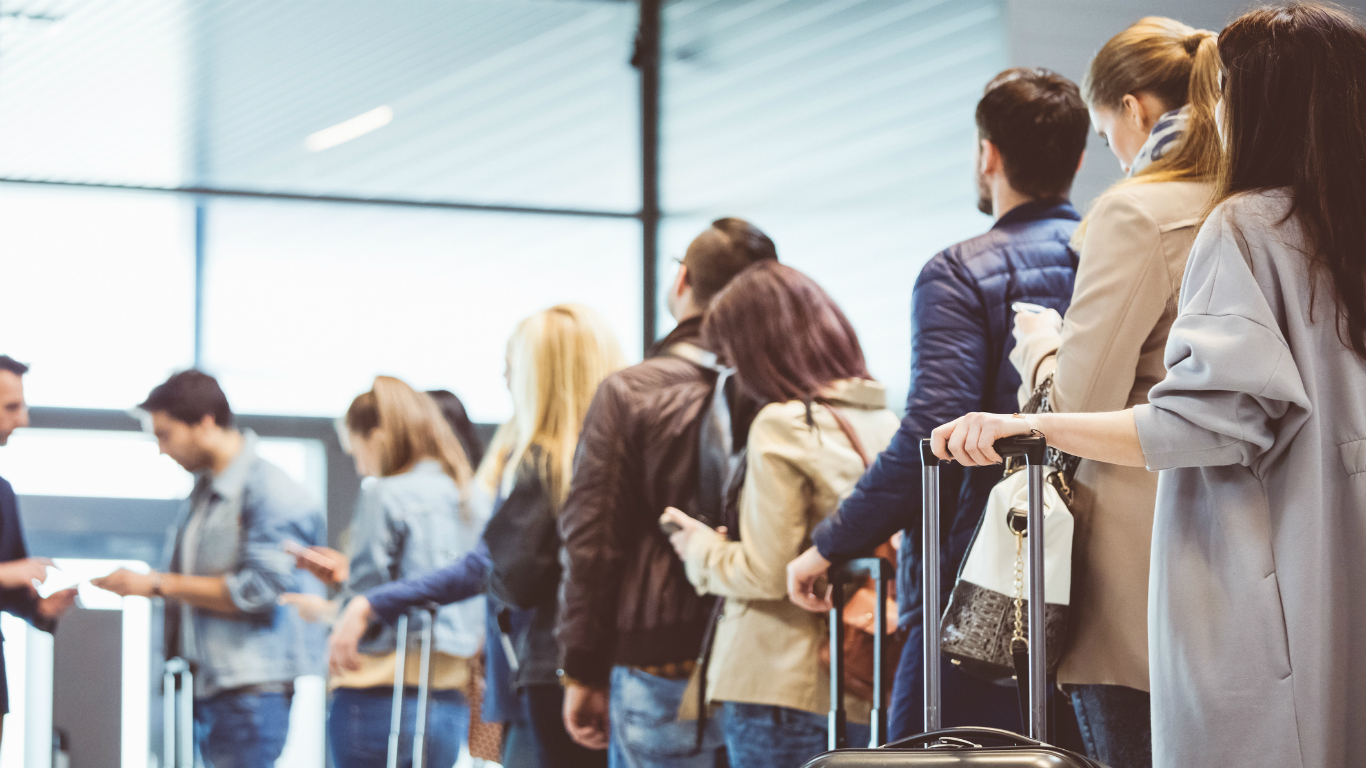
Published:
Last Updated:

Flying can be a frightening experience for some people. Planes are usually huge machines that can be very daunting. Nothing gets you to your destination faster, but this convenience comes at a price — and your body may have to pay.
From radiation to hearing loss, the body is exposed to all kinds of potentially harmful conditions during a flight. The longer the trip, the greater the chance of experiencing side effects. So the next time you feel discomfort while flying, it’s probably not just your imagination.
24/7 Tempo compiled a list of what exactly happens to your body when you fly. We reviewed several sources, including the Centers for Disease Control and Prevention, Aircraft Owners and Pilots Association, the World Health Organization, as well as other online sources with information on flying.
Side effects from flying are common but they are not among the things that aggravate people the most, and more than 90% of travelers actually don’t like flying. They have bigger problems — these are the biggest air travel complaints people have.
Traveling can take a toll on the body, especially traveling by plane. Many organs, including the skin, will most likely feel different – and not in a good way. The biggest culprit is the air pressure level in the cabin, which can vary.
So if you’re flying this summer, try to make the trip short or plan to have long enough layovers so you can prevent possible side effects. Ideally, you’d want to avoid any delays — and these are the airports where you’re likely to be on time.
Click here to read about how flying affects your body.
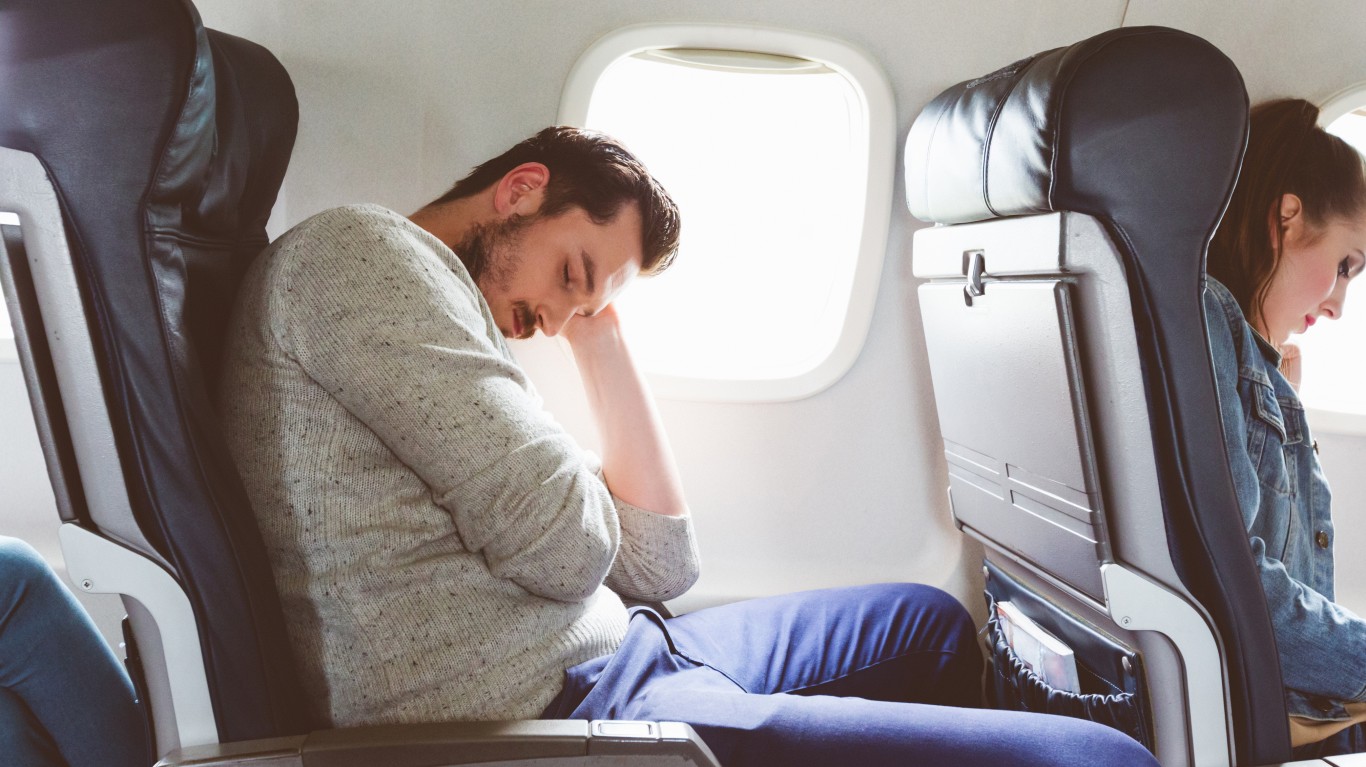
1. Jet lag
Whether you travel all the time or once a year, you’re likely to experience the common and unpleasant sleep phenomenon of jet lag. Your internal clock becomes out of sync as a result of traveling in different time zones, which can affect your sleep and alertness. Daytime fatigue, insomnia, and mood changes are common symptoms.
[in-text-ad]
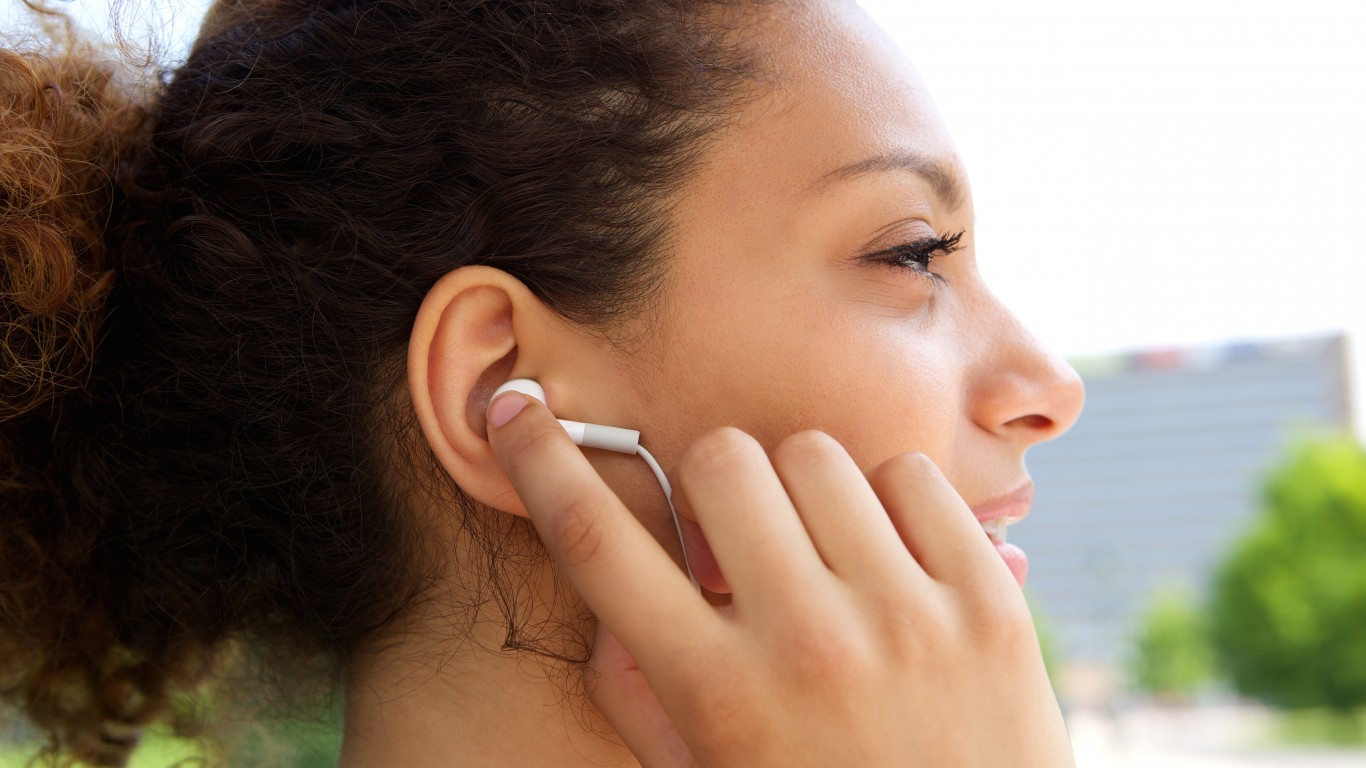
2. Hearing loss
Whether you’re in first class or economy, airplane ear will likely get to you; it does not discriminate. Remember the pressure inside your ears when a plane lands and takes off or when there is a sudden change in altitude? That’s airplane ear, or ear barotrauma. Muffled hearing and temporary mild hearing loss are common symptoms. Yawning, swallowing or chewing gum — a pacifier or a bottle of milk if you’re traveling with an infant — should take care of the problem.
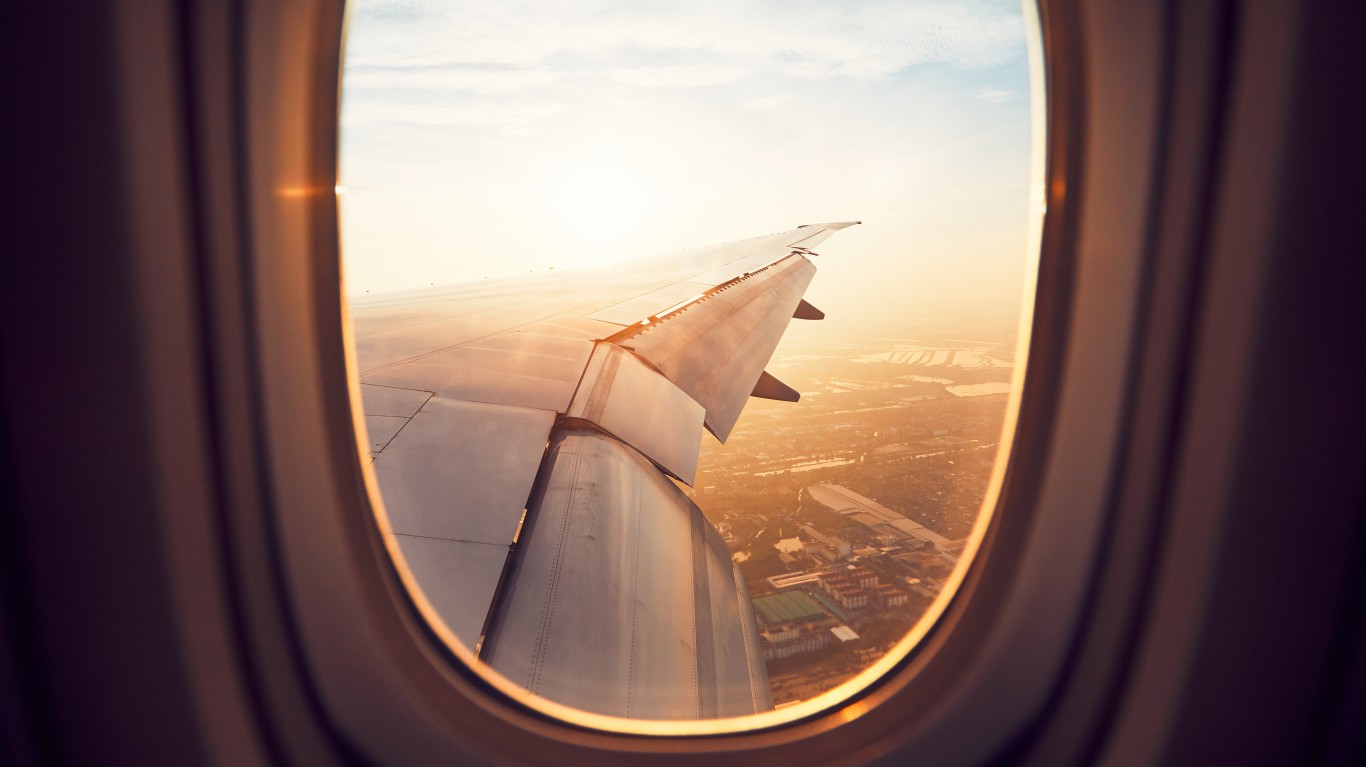
3. Cosmic radiation
Changes in elevation and atmospheric conditions can change how much cosmic radiation we are exposed to. In 2015, an investigation warned that a solar storm can trigger a shower of radiation that can affect people. The radiation, researchers say, is too weak to cause danger at ground level, but neutrons that don’t reach the ground do reach airline altitude. That’s why airplanes are diverted away from the North Pole during solar particle events — a lot more cosmic rays come down there.
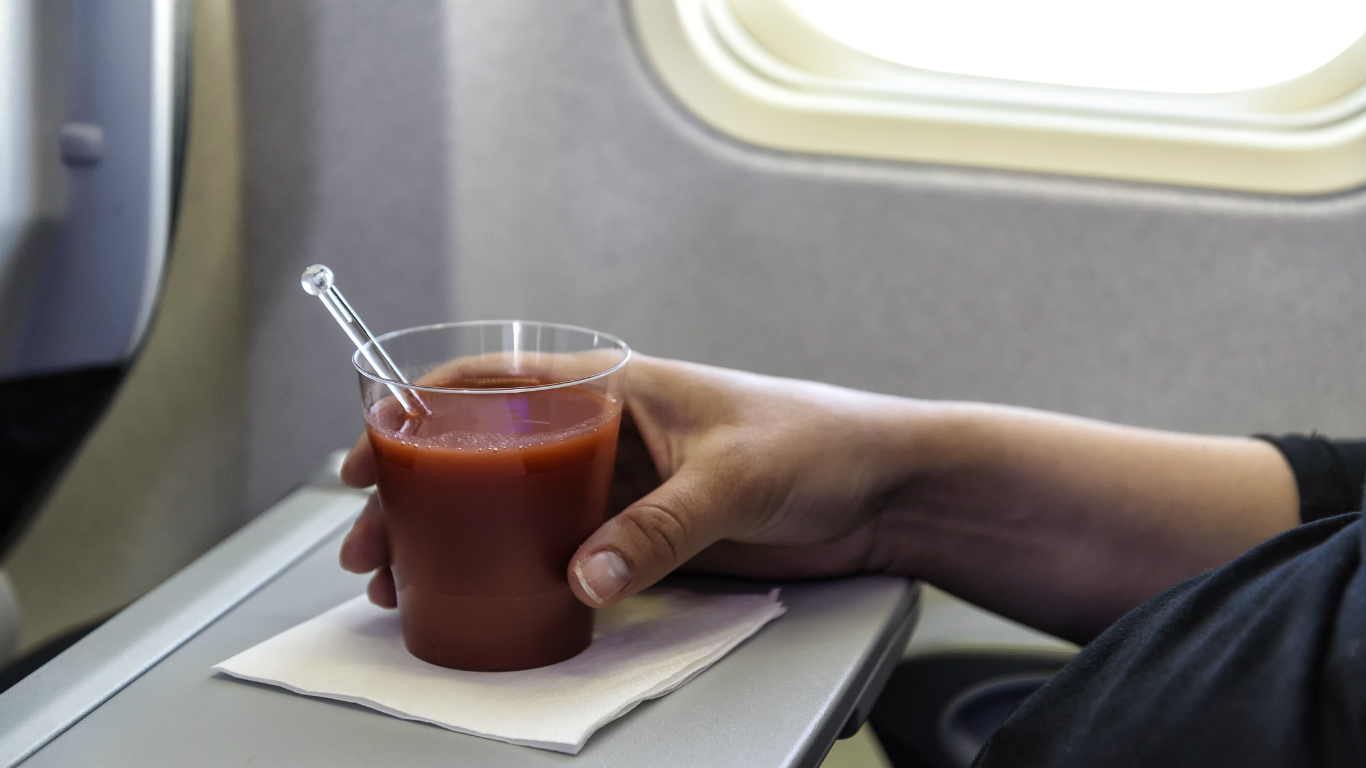
4. Taste buds change
Chances are you’ve had tomato juice on a plane — and only on a plane. United Airlines tried in 2018 to remove the drink from its menu but people revolted and the airline had to bring it back. There is a perfectly logical explanation as to why tomato juice (or a Bloody Mary) is the preferred drink of many travelers up in the air. The high decibel level in the plane plays with people’s taste buds. Also, taste receptors are less sensitive because of the low pressure in the cabin, causing less oxygen in the blood. Sweets are not felt as strongly, while savory tastes are heightened.
[in-text-ad-2]

5. Skin becomes more sensitive
Blame it on the lack of air in a plane. The skin dehydrates as the air in the cabin is less humid. Some research has shown that flying can dry out the skin by as much as 37%. Dry skin is likely to be itchy. Oil gets trapped under the skin while it tries to secrete more to fight the dryness, possibly leading to pimples and breakouts. This is true for all types of skin. The so-called “airplane acne” usually disappears in a few days; it’s not a chronic condition.
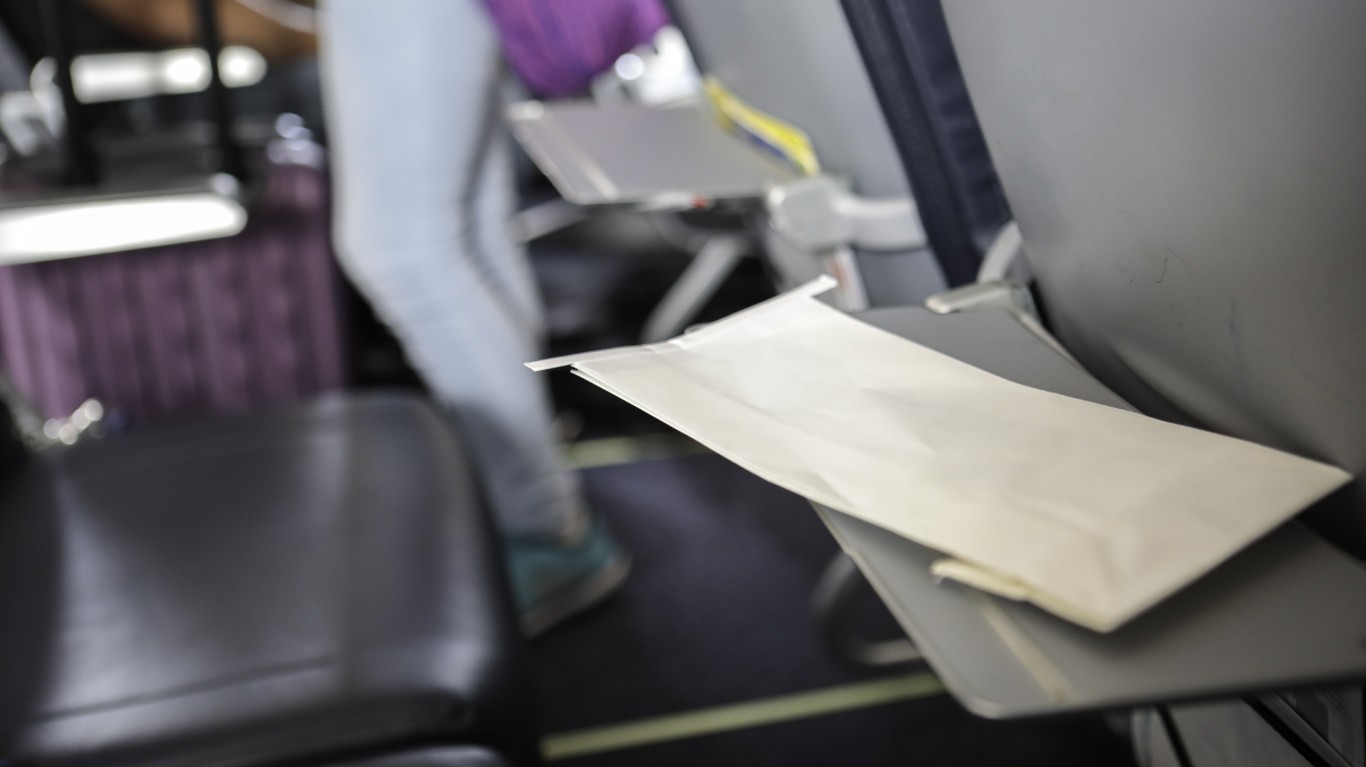
6. Motion sickness
Motion sickness is a common side effect of traveling and, contrary to popular belief, it happens to people who don’t only travel by sea or car. The body, the inner ear, and the eyes send inconsistent signals to the brain. Cold sweats, dizziness, headaches, and fatigue are common symptoms. Many student pilots experience motion sickness. But after a while they get used to the sensations of the flight environment and don’t have any issues.
[in-text-ad]
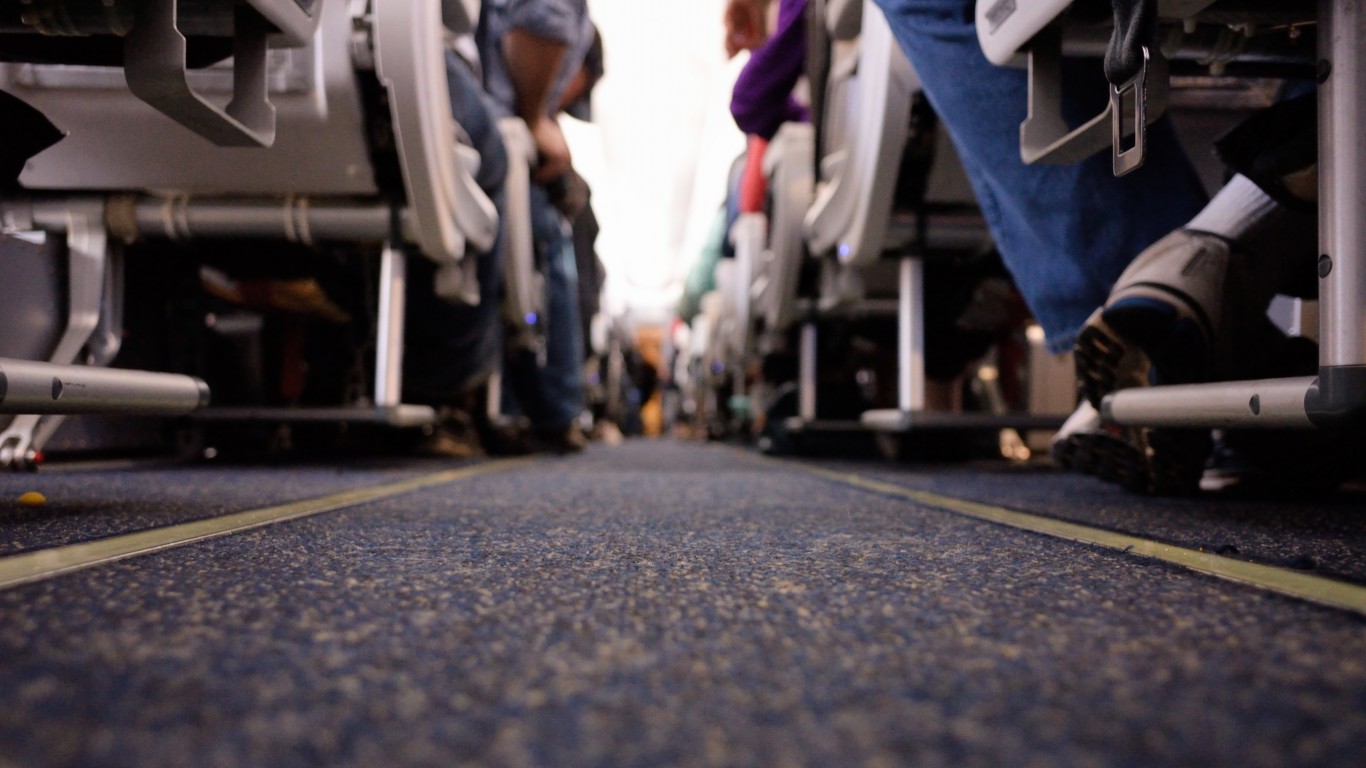
7. Swollen feet and ankles
Leg and foot swelling is very common during flights — you sit down too much, blood flow slows down and blood pools in your leg veins. That, combined with the extra pressure on your legs from sitting, leads to swelling. Most of the time this is harmless and is easily taken care of – just get up every hour or so and move around — and never wear tight clothing. People at a higher risk of swelling and experiencing complications from it are pregnant women and people who’ve recently had surgery or take certain medications.
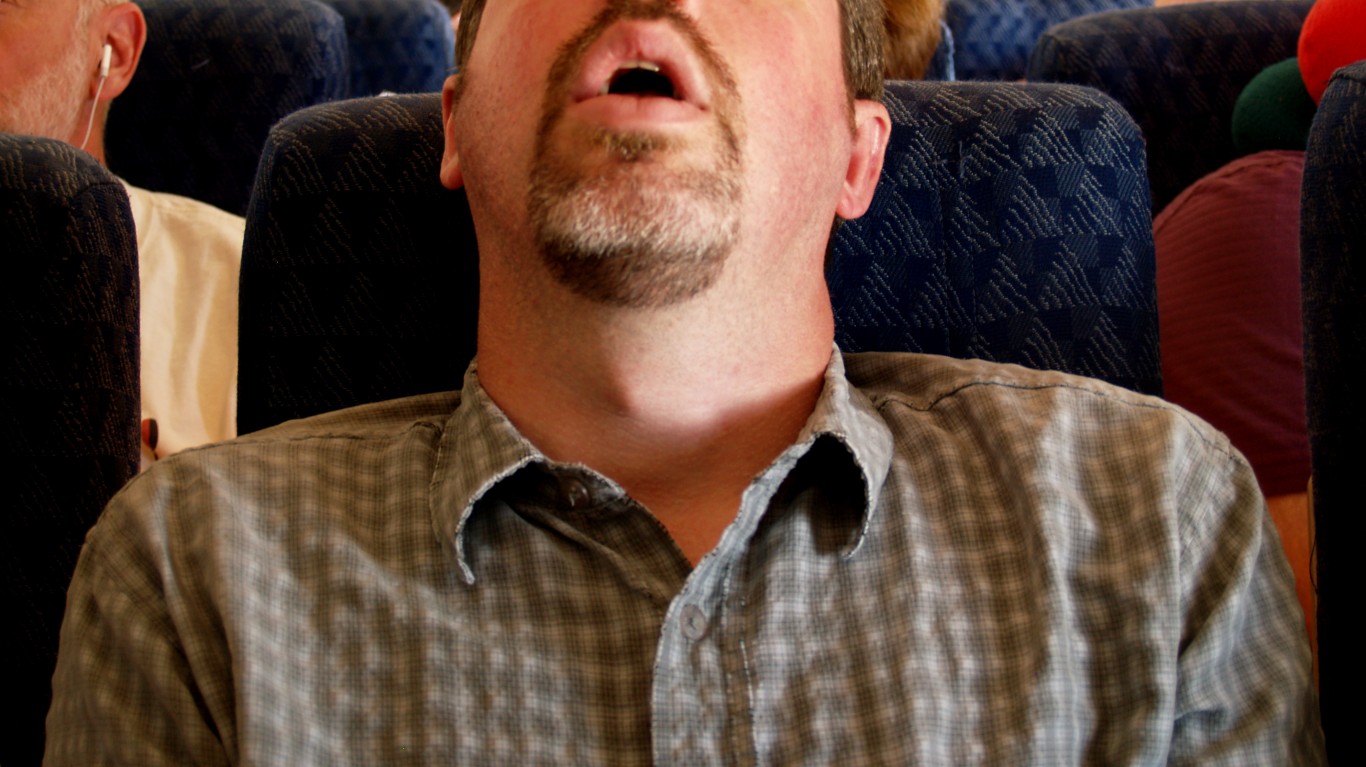
8. Bad breath
Who hasn’t been embarrassed to open their mouth after waking up from a nap on a plane? Bad breath is a side effect of dehydration. Saliva, which has antibacterial properties, keeps the mouth clean and bacteria away. Chewing gum can help stimulate saliva production.
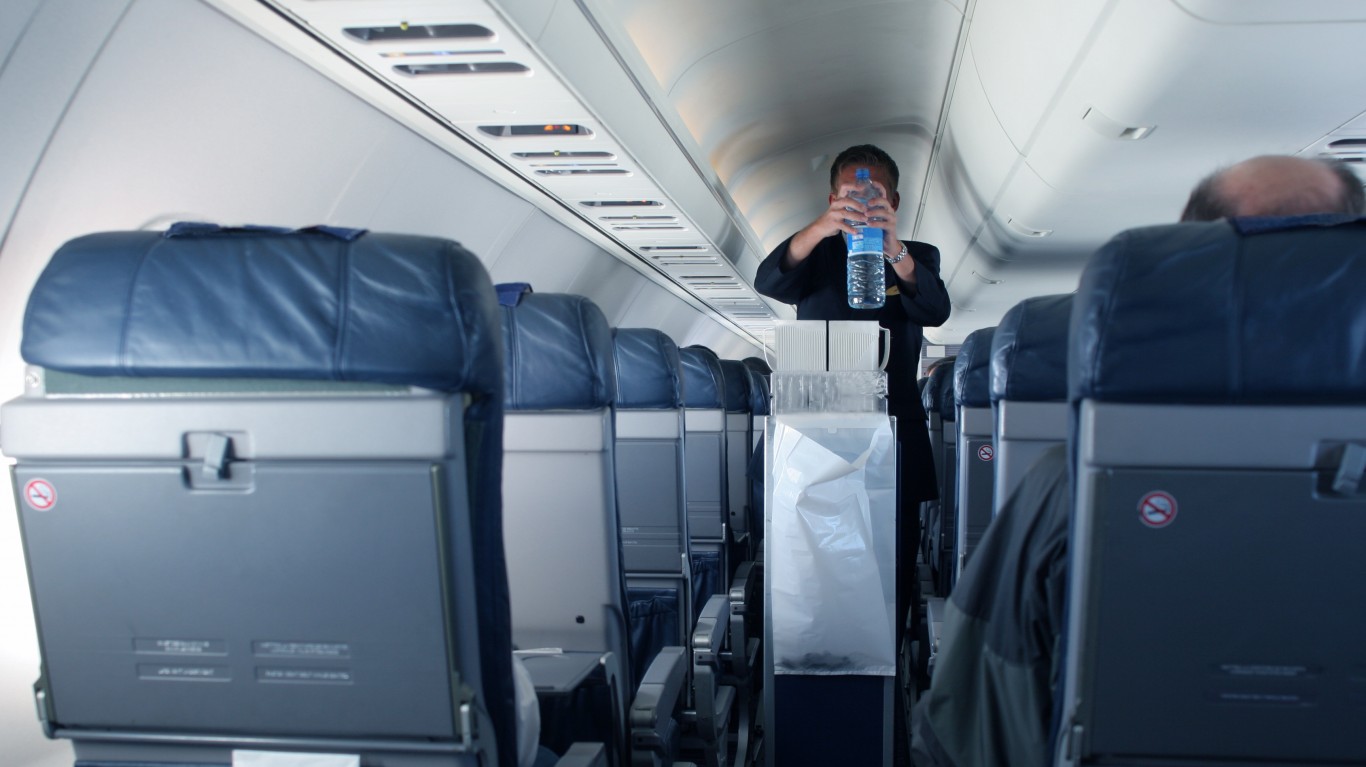
9. Dehydration
The reason you get dehydrated in airplane cabins is because of the low-humidity level. Jets draw in 50% of the air circulating in the cabin from the outside, and that air lacks moisture. The obvious answer is to drink more water and refill a water bottle often. You should also wear glasses instead of contact lenses and your carry-on should contain lotion, eye drops, and nasal spray.
[in-text-ad-2]
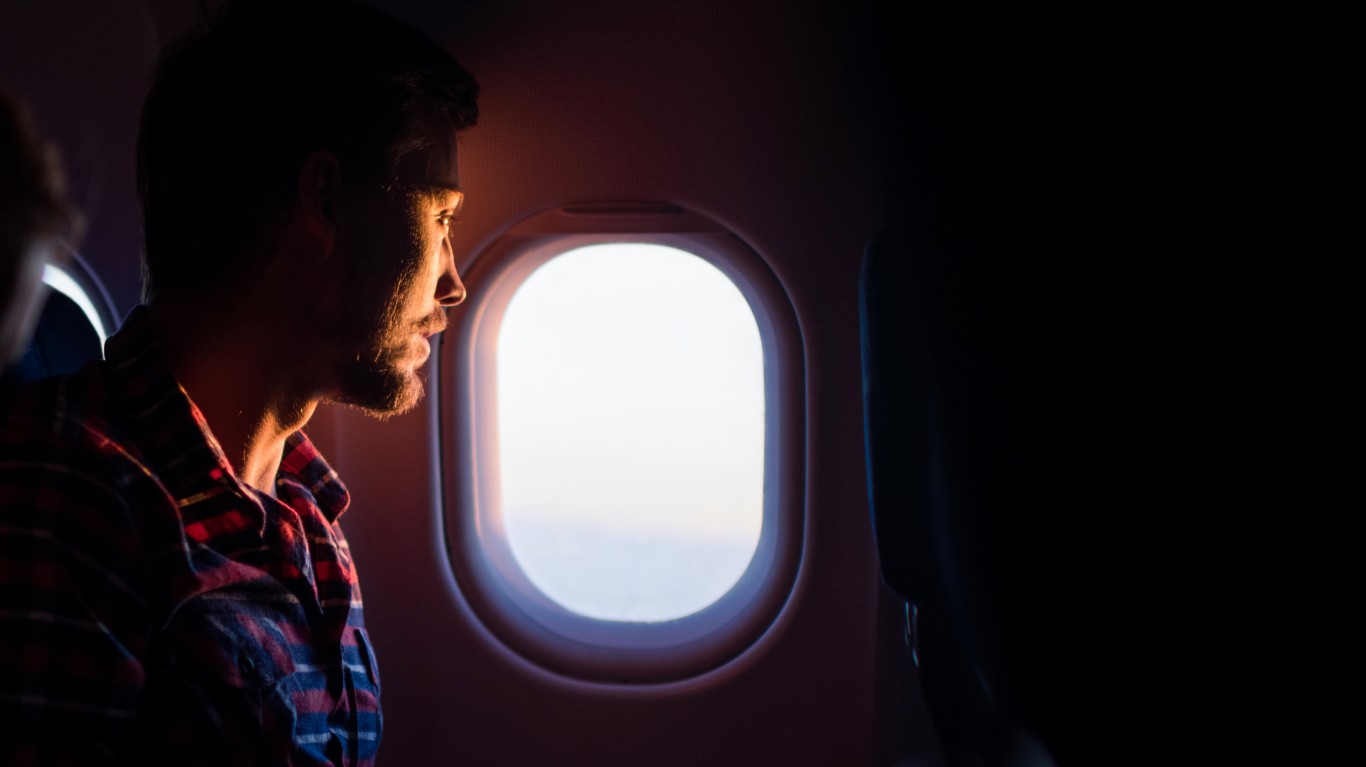
10. Mood changes
Medical journals say there are studies that suggest jet travel appears to cause mood changes based on the disruption of the circadian rhythm. Though the medical community is not certain why this happens, enough research has been done to confirm that it does. The studies say these changes increase periods of depression for those traveling west compared with those with an elevated rate of manic/hypomanic episodes — this is associated with bipolar disorder — with eastward travel.
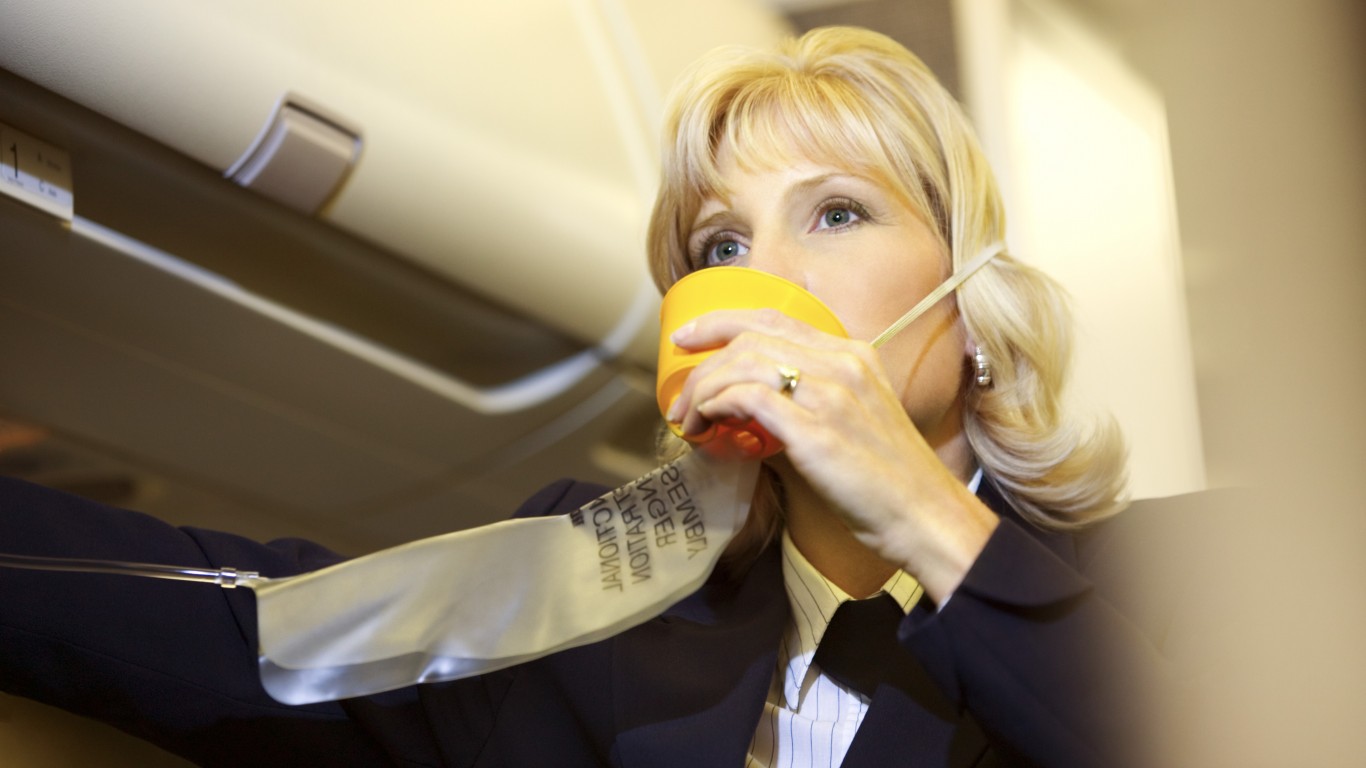
11. Less oxygen
Cabin air pressure in jets is relatively low, and the amount of oxygen normally carried in the bloodstream is reduced compared with oxygen amounts at sea level. The change in air pressure is well tolerated by most passengers. However, those with medical conditions such as lung diseases and blood disorders may experience reduced oxygen levels, or hypoxia. Travelers with this condition are advised to tell the airline they are traveling on to arrange for an additional oxygen supply while flying.
[in-text-ad]
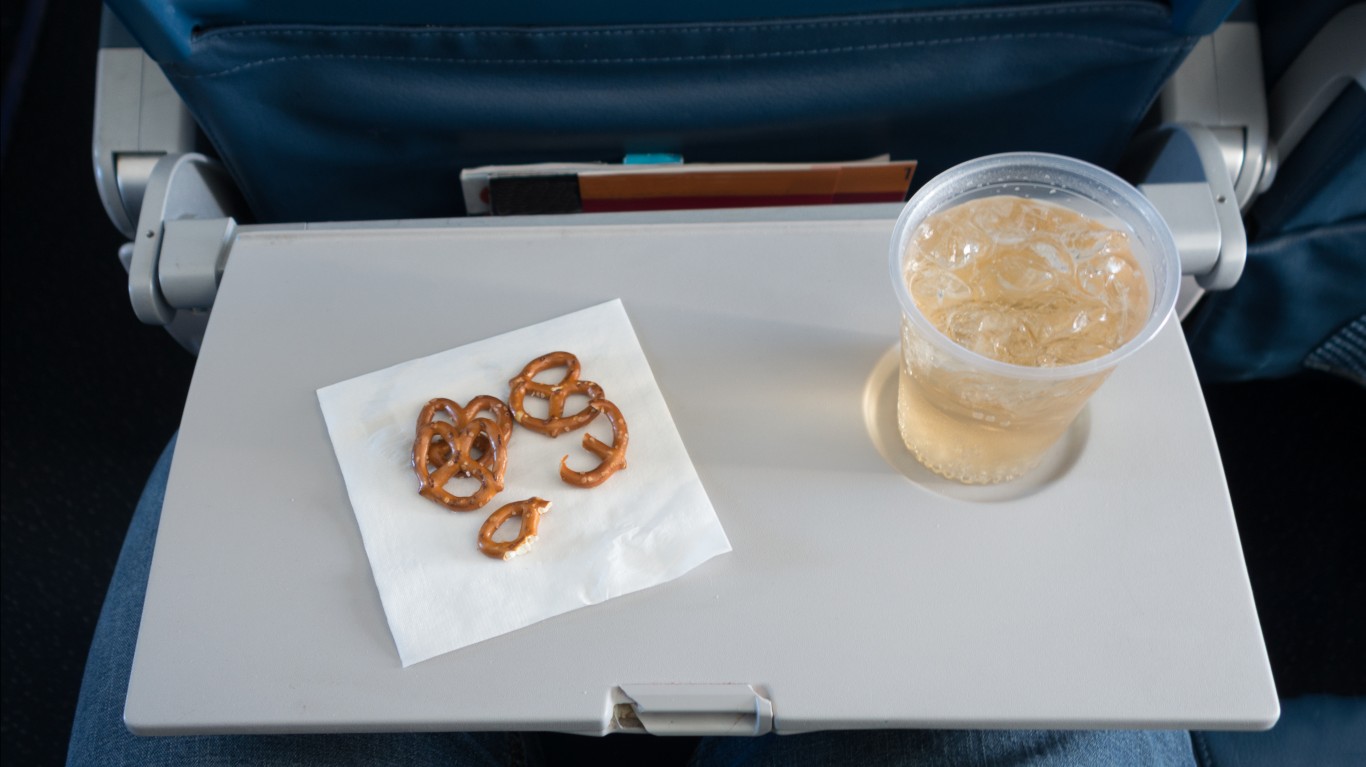
12. Lack of appetite
Because travel disrupts your daily routine, it can affect your appetite as well. These changes cause your body to activate its fight response, releasing chemicals called catecholamines. The body reacts by temporarily closing appetite areas in the brain. Physicians suggest people do activities that are relaxing before they fly and avoid so-called trigger foods such as caffeine, alcohol, and exotic foods before traveling.
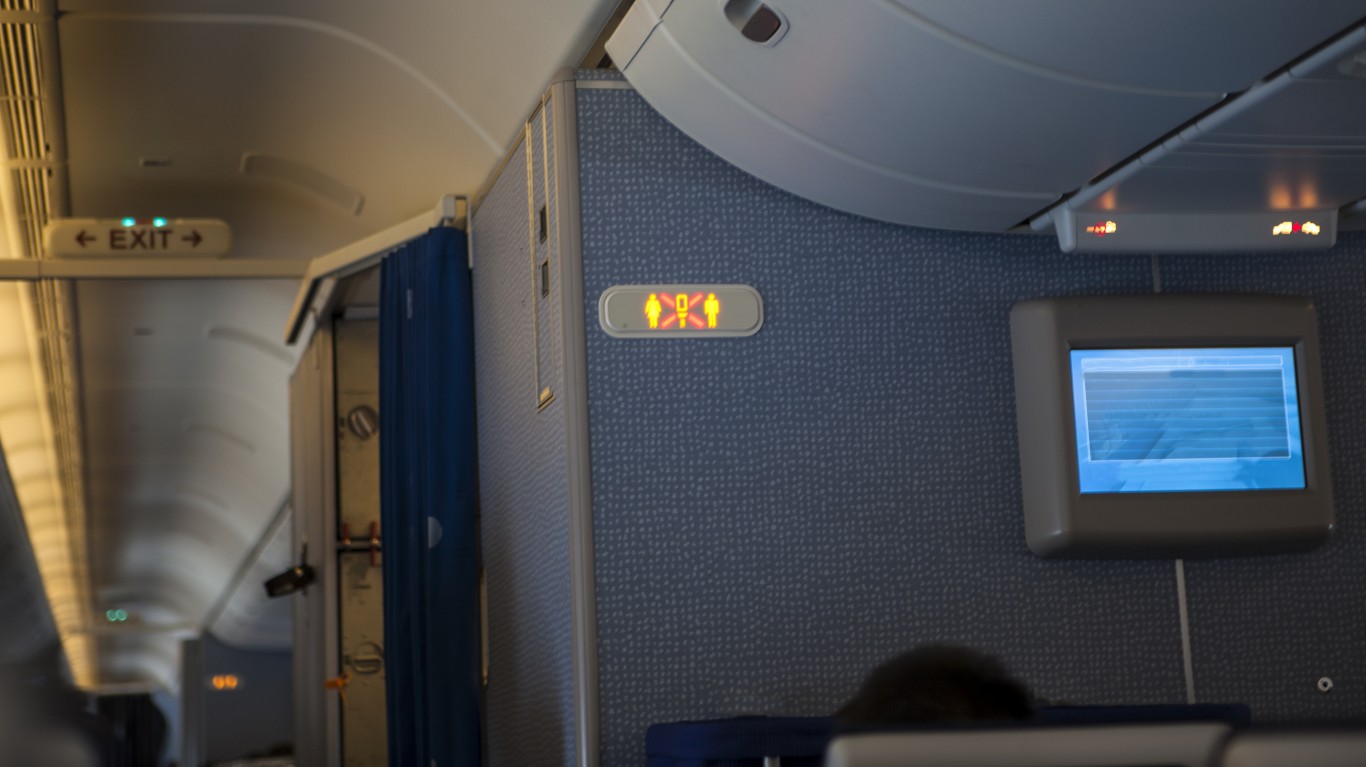
13. Change in bowel movements
A change in bowel movements, sometimes called vacation constipation, is a common occurrence when people go on holiday. It can start while traveling because of limited bathroom access, and can continue because of a change in diet. To address this, before traveling, people should eat foods with probiotics (kimchi, tempeh and yogurt) because they contain good bacteria that helps digestion. During travel time, exercise and avoid snacks like chocolate and chips and instead eat high-fiber options like nuts and fruit. And drink lots of water.

14. Deep vein thrombosis
Deep vein thrombosis (DVT) occurs when a blood clot forms in a large vein. Should the clot detach from the vein, it can travel to the lungs and block arteries to the lungs, causing what is called a pulmonary embolism. Travelers are at risk for this if they are sitting for a long time. People who are at increased risk are those who have had a previous blood clot, have a family history of blood clots, are obese, and are older. To prevent DVT, travelers are advised to wear medical compression stockings and take medication before traveling. They should pick an aisle seat and walk around every two to three hours while in flight. Travelers should also exercise calf muscles while seated.
[in-text-ad-2]
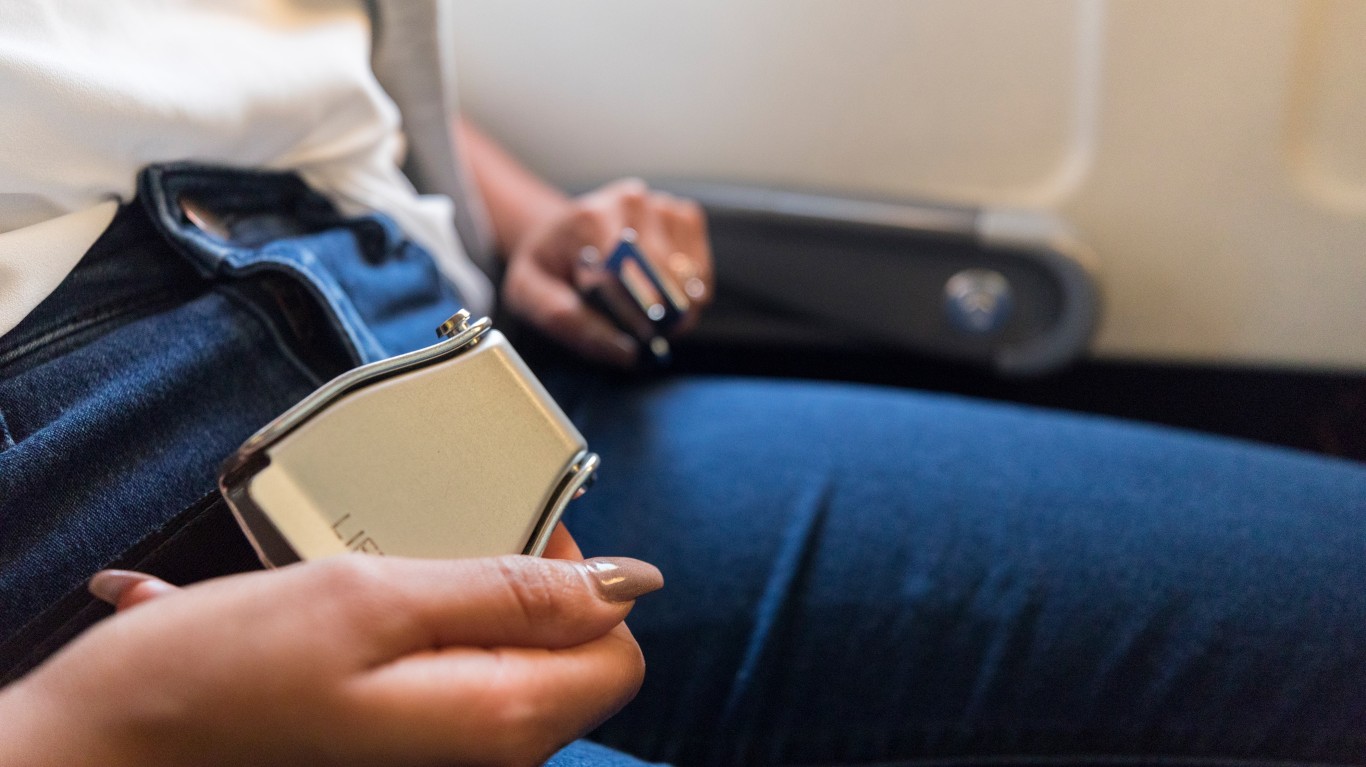
15. Bloating
Bloating is a common and uncomfortable effect from flying. There are several reasons why this happens. A change in air pressure in the cabin may cause gases within your body to expand, so experts advise travelers to avoid carbonated beverages and fatty foods. Remaining seated for hours at a time contributes to discomfort and passengers are advised to move around to reduce bloating. Drinking plenty of water keeps you from being dehydrated and will help with jet bloat.
If you’re one of the over 4 Million Americans set to retire this year, you may want to pay attention.
Finding a financial advisor who puts your interest first can be the difference between a rich retirement and barely getting by, and today it’s easier than ever. SmartAsset’s free tool matches you with up to three fiduciary financial advisors that serve your area in minutes. Each advisor has been carefully vetted, and must act in your best interests. Start your search now.
Don’t waste another minute; get started right here and help your retirement dreams become a retirement reality.
Thank you for reading! Have some feedback for us?
Contact the 24/7 Wall St. editorial team.